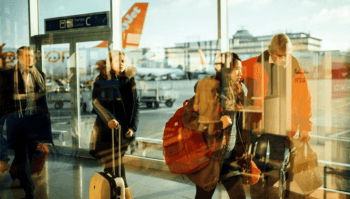How Do I Avoid Jet Lag?

Jet lag can be a real buzzkill when flying across multiple time zones, and most travelers assume their first several days in a new locale will be spent catching up on sleep and letting their body clocks adjust. However, jet lag doesn’t always have to intrude on your fun. According to a Texas A&M Health Science Center College of Medicine sleep specialist, there are a few ways to “body-hack” your jet lag before your plane leaves the tarmac.
Eastbound and down
First and foremost, jet lag and its impact will vary from person to person depending on their lifestyles. Regardless of the number of hours spent traveling, eastbound jet lag—flying from the United States to Europe, for example—will be worse. Our internal body clocks make a more seamless time jump when flying from east to west—or, from Europe to the United States.
“You will always be hit harder by jet lag when making a four- to six-hour time jump eastbound,” said David Earnest, PhD, a professor with the Texas A&M College of Medicine who studies circadian rhythms (the 24-hour cycles that tell our bodies when to eat, sleep and perform certain processes). “This is because our body clocks are trying to advance to an earlier time, which is not as easy as adjusting to a later time gap.”
According to Earnest, our body clocks can adapt up to two to four hours a day when traveling from east to west. But, we only adjust one to two hours a day when traveling the opposite direction—west to east.
“Let’s say you’re flying eight hours east across time zones: If our body clocks only adjust one hour a day, it will take our body four to eight days (without preparation) to synchronize and acclimate,” Earnest said. “Since our bodies can jump two to four hours when traveling westbound, the same flight west only requires half of this adjustment period.”
Flight times also determine the severity of jet lag. If you choose to take an overnight flight when traveling east, and aren’t able to sleep on the plane, you’ll automatically be tired when you arrive at your destination in the early morning hours. However, sleeping on overnight flights is one of the best ways to fight the effects of jet lag.
Read tips about dealing with jet lag on Vital Record.
This article by Lauren Thompson originally appeared in Vital Record.





